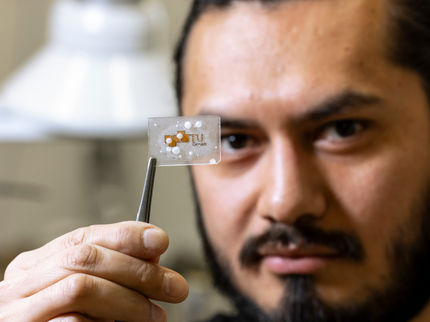Combinatorial Chemistry Capability Puts Dow On The Leading Edge of Products Research
Advertisement
How are new products and plastics for the next generation of athletic apparel, footwear and even computers being invented, and who is doing it? The cutting edge of products research for polymers and other materials is being done in the Dow combinatorial chemistry Lab, located at Dow's R&D facilities in Midland, Michigan. Using advanced robotics, engineering, computers and novel software, the Dow Research and Development (R&D) organization is using technology, first used by drug companies to discover new medicines, to explore the frontiers of molecular structures and invent new products.
Combinatorial Chemistry is being used at Dow to find new compounds in a range of applications, from polymers to electronic chemicals to formulated lubricants and coatings. Ultimately, Combinatorial Chemistry will allow Dow to commercialize products faster and increase commercial offerings.
Combinatorial Chemistry is a high-speed way to conduct and evaluate hundreds of experiments in a single day. This research method uses advanced computer modeling to identify molecules that could potentially be used for an application or process, then uses an automated laboratory to make these chemicals and screen them for manufacturing utility and market appropriateness. Using traditional research methods, scientists are only able to do a handful of experiments in that same time.
This new approach to chemical discovery uses banks of robots and computers to systematically react chemical ingredients in thousands of different combinations at once. The new process speeds research from a one molecule at a time to a process where thousands of compounds are created and screened within only a few days. Catalysts are a promising area of research. Dow is working now to identify new catalysts for chemical processing. Catalysts are widely used in the chemical industry and one that performs new reactions, or accomplishes old ones more efficiently, is potentially revolutionary.
Combinatorial Chemistry is one of the most important new technologies to emerge in the last ten years because it quickly identifies promising materials and, just as importantly, rapidly eliminates those that are less promising. Combinatorial Chemistry will have a major impact on how the chemical industry does R&D and will impact most of Dow's businesses.















































